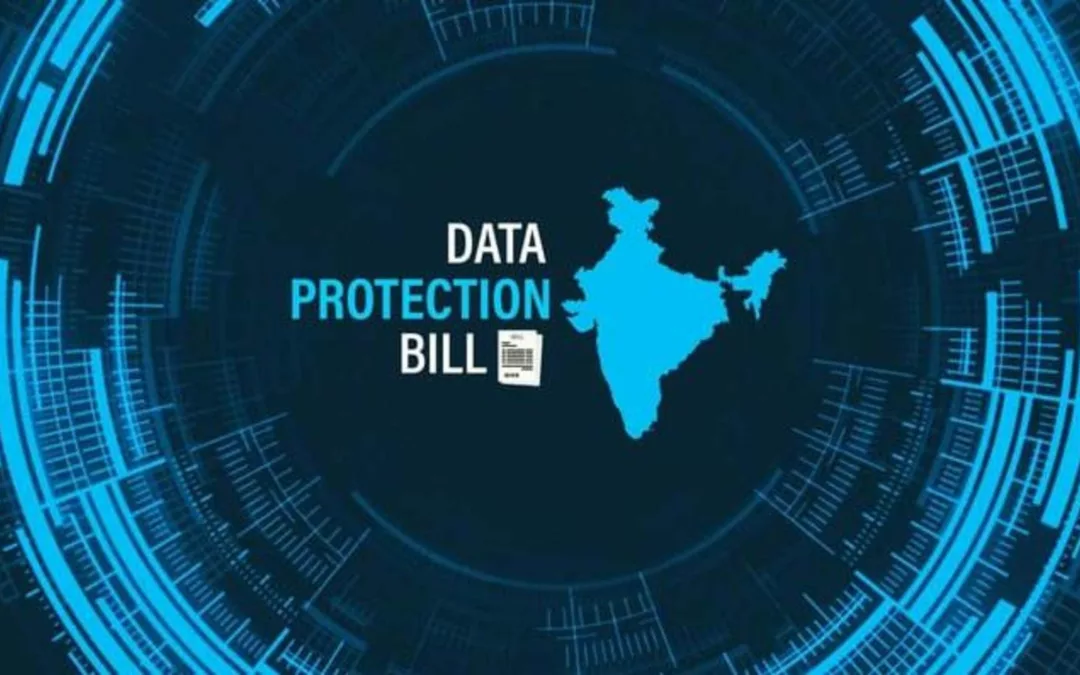The Data Protection Bill stands as a commendable step towards safeguarding individual privacy and digital security.
Today India is on every big nation’s radar especially in terms of investment and business interests. The technological revolution in India has made us an appealing option in the eyes of many nations. However, with such developments come challenges. In an era where digital interactions have become an integral part of our daily lives, the need to safeguard the data of millions of Indians has taken centre stage.
Based on a recent report by cybersecurity firm Surfshark, India is the 7th most cyber-breached nations globally. The analysis reveals a noteworthy shift in data breaches. In the final quarter of 2022, the total count of compromised accounts reached 8.5 million. However, this number has notably diminished to 2 million during the initial quarter of 2023. To put this into perspective, the rate of hacking incidents has changed from 65 accounts being compromised per minute in Q4 2022 to 16 accounts per minute at present.
Partho Dasgupta, Ex-CEO of BARC India and Presently Managing Partner, Thoth Advisors shares “The recent introduction of the Data Protection Bill comes as a beacon of hope, addressing the pressing concerns surrounding privacy breaches and data misuse. This bill, a crucial stride toward digital safety, aims to fortify the security of individuals’ personal information, ensuring their rights are upheld in the digital realm.”
The Digital Personal Data Protection Bill, 2023, has emerged as a significant legislative initiative in India’s pursuit of robust data protection. Passed by the Lok Sabha amidst opposition protests, this bill holds the potential to transform the landscape of digital interactions. Let’s take a look at the highlights of the bill.
This legislation, encompasses the handling of digital personal information within India. This applies to data collected either through online means or offline methods that have been digitized. Even if the processing occurs outside India, it is subject to the Bill’s jurisdiction if it involves providing goods or services within the Indian territory.
The processing of personal data is permissible only when there is a legitimate purpose and the individual’s consent has been obtained. However, consent might not be necessary for specific valid purposes, such as when individuals willingly share their data or when the State processes data for official permits, licenses, benefits, and services.
Entities responsible for data, known as data fiduciaries, have an obligation to uphold data accuracy, ensure data security, and erase data once its intended purpose has been fulfilled.
The Bill establishes various rights for individuals, including the right to access information, request corrections and deletions, and seek remedies for grievances.
In certain circumstances, government agencies may be exempted from adhering to the Bill’s provisions by the central government. This is typically based on grounds like safeguarding national security, maintaining public order, and preventing criminal activities.
To oversee compliance with the Bill’s provisions, the central government will establish the Data Protection Board of India. This board will be responsible for addressing instances of non-compliance with the regulations outlined in the Bill.
“The need for a single authority like DPA to handle data protection is a must. It will streamline the processes and make it easier for the common man to understand how things will work” Shares Partho Dasgupta BARC ex CEO. As we navigate the intricacies of the digital landscape, this bill acts as a guiding light, championing the cause of data security and paving the way for a safer, more responsible digital future.
The Data Protection Bill stands as a significant stride toward safeguarding our digital identities. By vesting individuals with control and ensuring stringent compliance by organizations, this bill signifies a pivotal step toward a digital ecosystem that values and protects personal data. As we move forward, the implementation of this bill will undoubtedly redefine our digital experiences, ensuring that the right to privacy remains inviolable in our increasingly interconnected world.


Recent Comments